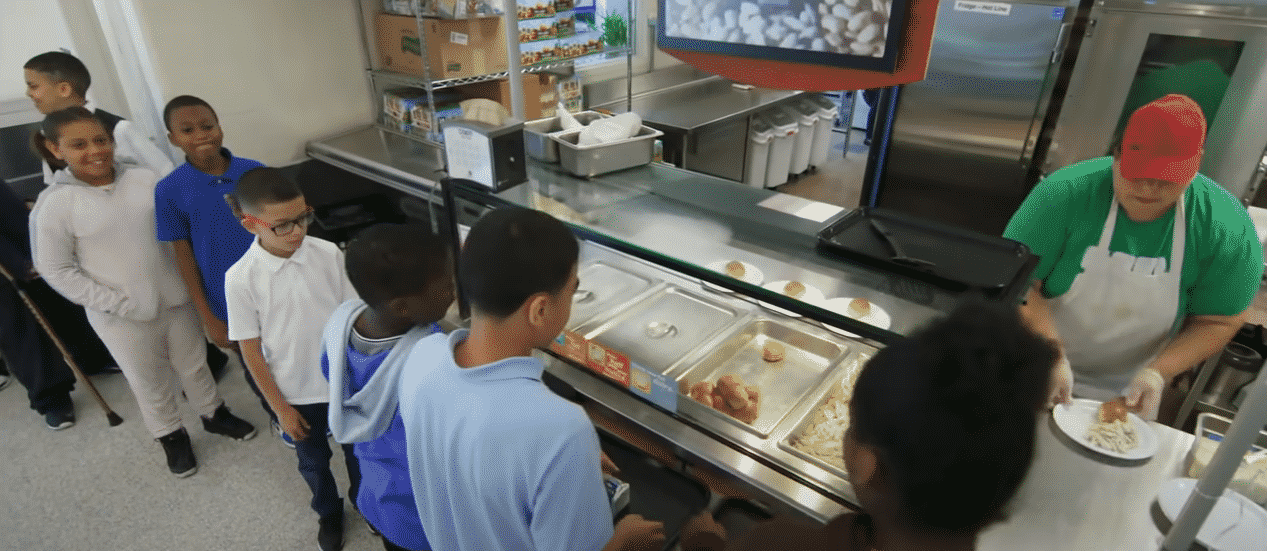“Nothing is so permanent as a temporary government program.” – Milton Friedman, economist
As the Covid pandemic appears to wind down in the United States, Democrats are winding up their efforts to expand and make permanent many of the pandemic’s “temporary” emergency assistance programs. The latest example of this is with school meals. Last month the US Department of Agriculture (USDA) announced it would extend the pandemic-era free school lunch program through spring of 2022. But some Democrats say that extension isn’t enough, and they want free school meals to be permanent for every student.
Sen. Bernie Sanders (I-Vt.), Rep. Ilhan Omar (D-Minn.), Sen. Kirsten Gillibrand (D-N.Y.), and Rep. Gwen Moore (D-Wis.) have introduced a bill, Universal School Meals Program Act of 2021, that would give all students free breakfasts, lunch, dinner, and snacks, regardless of family income.
Because the Congressional Budget Office has not yet “scored” this bill to determine its cost, no one can say how large the true price tag of universal free meals would be. In 2019, close to 29 million children received school lunch at a cost of $18.7 billion, according to the USDA. And no one knows how many of the nation’s 52 million students in schools participating in the school lunch program would opt for free school meals.
But the existing National School Lunch Program and School Breakfast Program are already some of the government’s most wasteful programs, according to federal auditors. Daren Bakst, a senior research fellow in agricultural policy at the Heritage Foundation, wrote in a guest column this week, “In recent years, the lunch program has accounted for nearly $1 billion in annual improper payments—assistance to students who are not eligible for these meals.”
Bakst believes that a universal free meal system is fiscally irresponsible. In a previous guest column in The Hill, he pointed out that “if millions more families struggle to make ends meet, then we should make sure these strained federal coffers conserve resources for those in need, rather than distribute them regardless of income.
“There must be concern for children from families in need. But expanding the federal meals programs to cover all students is simply wasteful. Most students who qualify for meals at their schools are from families eligible for food stamps, which could be adjusted if families need more funds to bridge them in the coming school year. Instead of finding ways to make more Americans dependent on the government, lawmakers must focus federal assistance related to free meals on families in need.”
Research Associate Davis Soderberg of the Free Enterprise Project at the National Center for Public Policy Research said that government inefficiency is always a concern. “Many times, when the federal government gets involved, they use a blanket approach for the entire nation. In this case, most school districts throughout the country don’t have hungry students, so using the ‘regardless of income’ approach is bad policy. It’s wasteful spending. I’ve always been a big believer that education policies and programs should be left to state and local governments. This is a perfect example of why.” He continued, “If certain school districts need federal grants to feed students, that’s fine. They should be helped. But using the federal government to send‘free meal’ money to school districts that don’t need it is more unwanted Washington spending, and we all know Bernie Sanders has no limit on how much tax-payer dollars he willing to dump into centralized programs.”
Soderberg warns that this kind of government waste is only going to get worse because of the ever-expanding push for positive rights (rights that entitle a person to something such as the “right” to free healthcare, a basic universal income, and free childcare).
“Think about this carefully. Positive rights require someone else’s service to reframe from violating a right,” he explained. “These rights – which are too often supported by the left – hinder one’s freedom, to provide another their so called ‘right.’ For example, if we had a right to healthcare in the United States, would a sick individual be able to bang on a doctor’s door in the middle of the night and demand he provide him care because it’s his ‘right?’ In a way, this is enslaving the doctor, because if the doctor didn’t abide by the sick person’s request, he/she would be violating their right.”
Soderberg added that attempts to make permanent the temporary assistance programs is part of the Democrat’s larger agenda.
“The coronavirus pandemic has been their golden opportunity to normalize citizen’s reliance on the government. They want people to believe ‘this is just how life is now. This is the government’s role.’ Power-hungry leaders have always tried to increase their influence during times on panic and despair. To many citizens, as we have seen during the past year, will give up their freedoms for a false sense of security. But people have to be careful, because it’s a lot easier to give your freedoms away than to get them back.”
Sanders’ proposal would needlessly expand a notoriously wasteful program while allowing federal officials to abdicate their responsibility to keep track of which students actually need assistance.
Welfare shouldn’t be turned into an entitlement program for the wealthy. Nor should the federal government try to create greater dependence on government.
Catherine Mortensen is Vice President of Americans for Limited Government.







